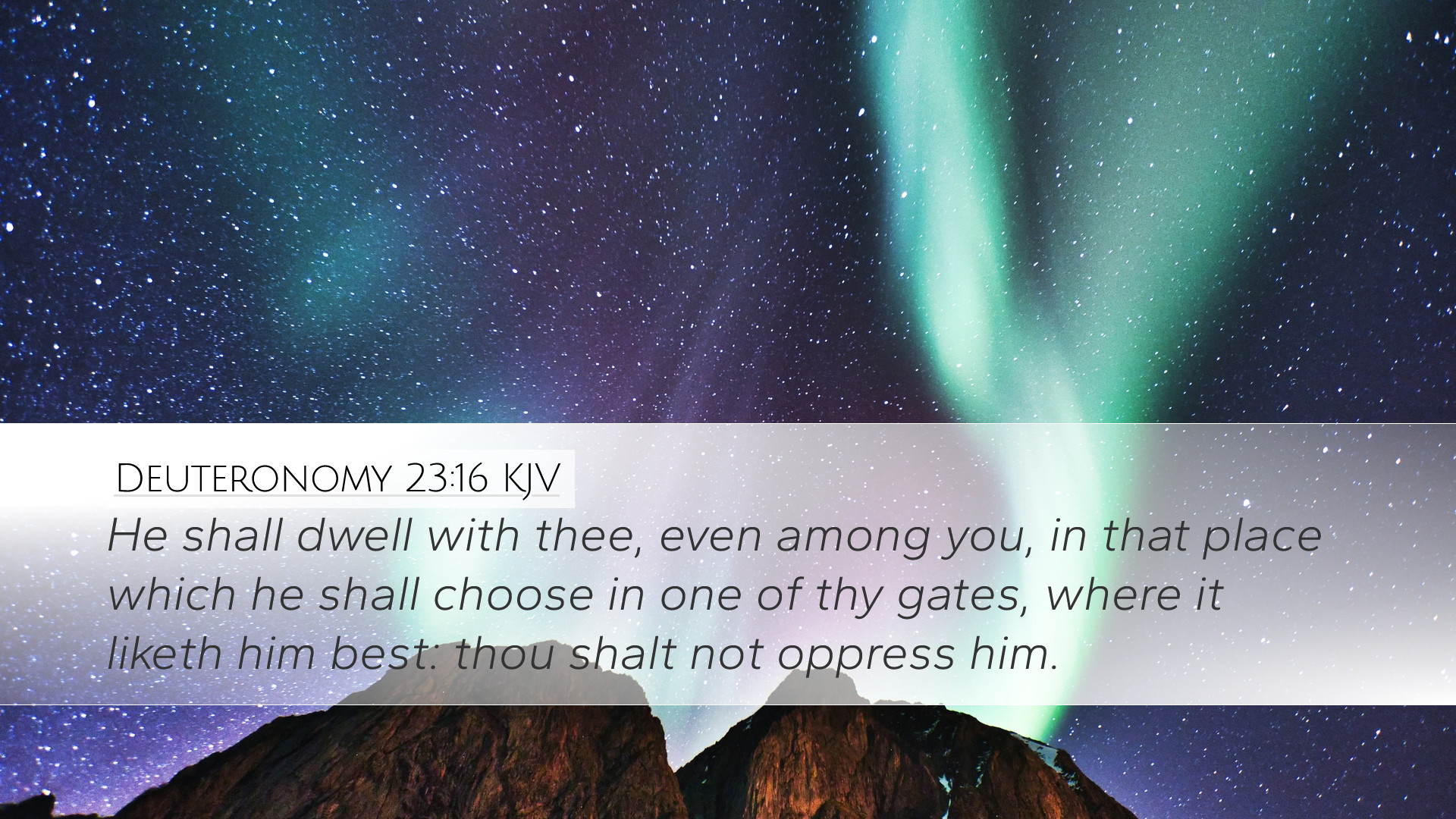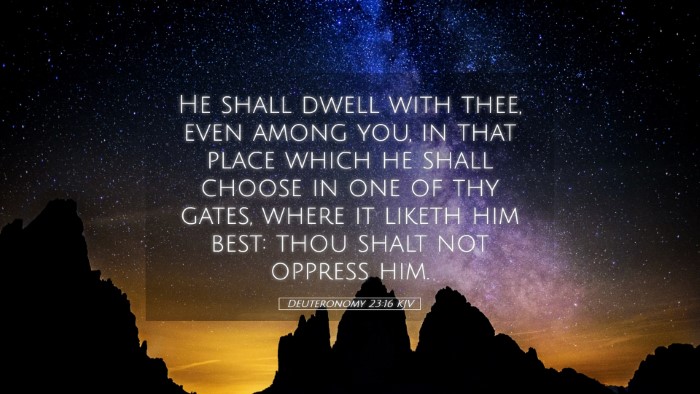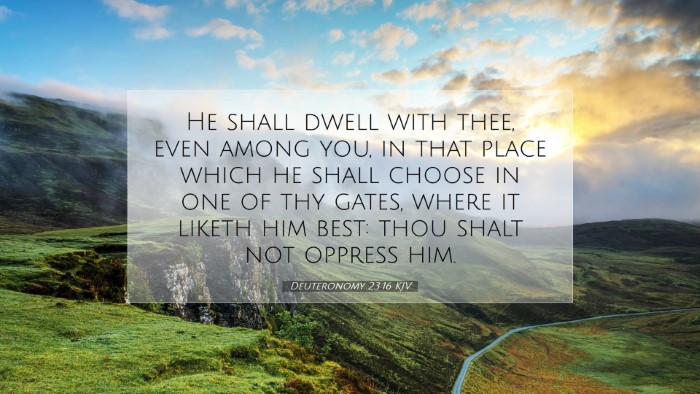Commentary on Deuteronomy 23:16
Deuteronomy 23:16 states:
"He shall dwell with thee, even among you, in that place which he shall choose in one of thy gates, where it liketh him best: thou shalt not oppress him."
Contextual Background
In order to understand this verse thoroughly, it is crucial to explore its context within the book of Deuteronomy. This work, traditionally attributed to Moses, serves as a restatement of the Law given to Israel. It addresses the Israelites as they prepare to enter the Promised Land, reaffirming their covenant relationship with God.
Interpretative Considerations
Deuteronomy 23:16 comes in a section that discusses various laws regarding community living, social justice, and the treatment of marginalized groups. In this case, the verse focuses on the treatment of fugitive slaves or servants. The inclusion of such stipulations illustrates the overarching Biblical principle of mercy and justice.
Insights from Matthew Henry
Matthew Henry emphasizes the importance of compassion and humane treatment in this passage. He notes that the instruction to allow a runaway servant to dwell among the Israelites is not merely a legal stipulation but a moral imperative reflective of God's character.
- Compassion and Care: Henry highlights that the act of receiving a runaway servant is an act of compassion, reflecting God's mercy toward us. This draws attention to the importance of treating all individuals with dignity, irrespective of their status.
- Emphasis on Freedom: Henry also points out that the command not to oppress the runaway implies a recognition of his autonomy and the wrongfulness of forced servitude.
Insights from Albert Barnes
Albert Barnes offers a more practical perspective on this verse, emphasizing the sociological implications of the command. He argues that the acceptance of the fugitive within the gates of the community indicates a broader principle of inclusivity within the societal fabric of Israel.
- Welcoming Strangers: Barnes stresses that God's people are called to welcome and provide for those who find themselves in vulnerable situations. This is not just a law but a heartfelt principle that should govern all interactions.
- Legal versus Moral Obligation: He further clarifies that while the provisions may have legal elements, they are rooted in deep moral obligations, reminding the Israelites of their own past as slaves in Egypt.
Insights from Adam Clarke
Adam Clarke approaches this passage with a focus on its theological implications, expanding on the spiritual symbolism of the fugitive as a representation of the broader human condition.
- Representation of Humanity: Clarke relates the fugitive to the fallen human who seeks refuge in the grace of God. The command to welcome the fugitive reflects God's readiness to receive those who turn to Him in repentance.
- Moral Reflection: He urges readers to reflect on their own actions towards those who are marginalized, encouraging a self-examination of one’s attitudes towards social justice and mercy.
Theological Implications
Deuteronomy 23:16 speaks volumes about the character of God as a refuge for the oppressed. As interpreted through the lenses of these scholars, one can discern a framework for understanding the relationship between law and grace. It highlights a dynamic interplay between divine expectations and human responsibilities.
- Law as a Reflection of God’s Nature: The guidelines provided in this passage demonstrate that the commandments are not merely restrictive but are designed to bring about justice and compassion within the community.
- Application for Modern Believers: For contemporary readers, this passage prompts discussion around the current issues of social justice, refugee crises, and the treatment of marginalized populations.
Practical Applications for Pastors and Leaders
As leaders in the church, pastors and theologians can draw several practical applications from this verse:
- Promote Inclusivity: Churches should strive to be welcoming places for all individuals, particularly those who are marginalized or in distress.
- Encourage Mercy and Justice: Locate strategies for active involvement in social justice initiatives that reflect the compassion of God.
- Teach Biblical Values: Incorporate teachings based on this passage into sermons and church activities that emphasize mercy and inclusivity.
Conclusion
Deuteronomy 23:16 forms a foundational text that emphasizes God's call for His people to act justly and mercifully. The insights from esteemed commentators highlight the significance of understanding and applying these biblical principles, fostering a community rooted in love and acceptance. As students and leaders engage with this passage, they are reminded of their calling to reflect God’s character in their own lives, focusing on compassion as a central tenet of their faith.


